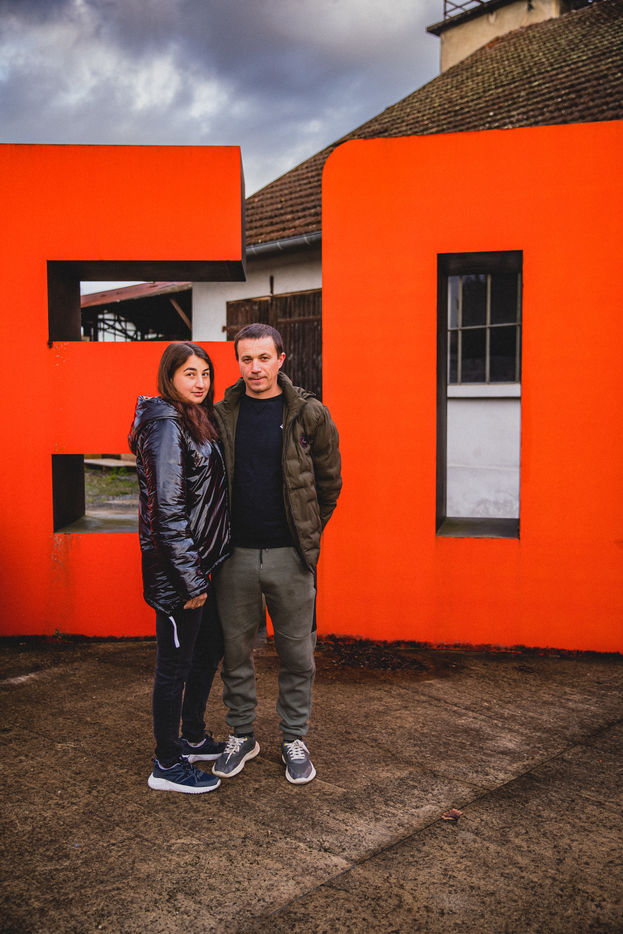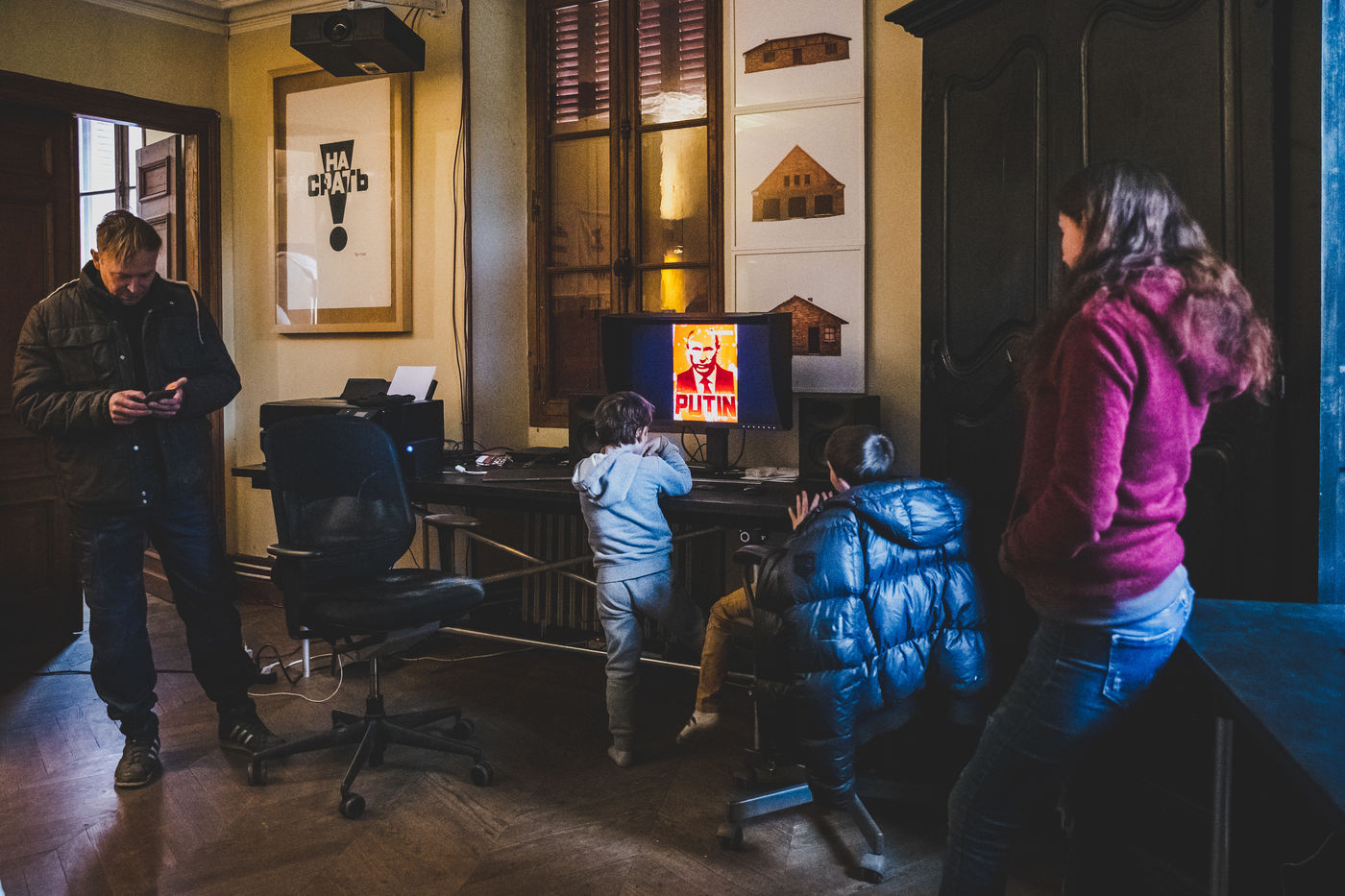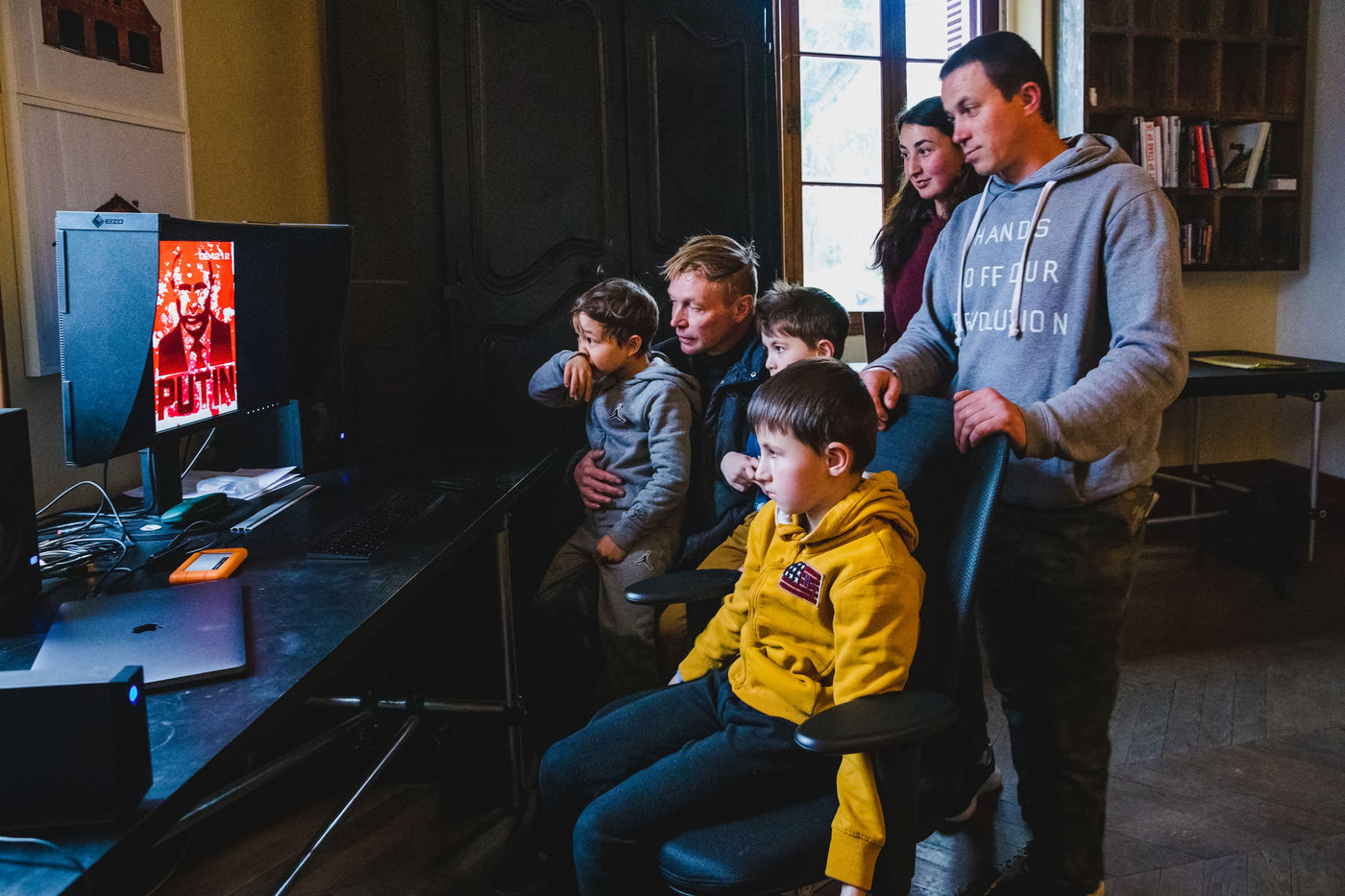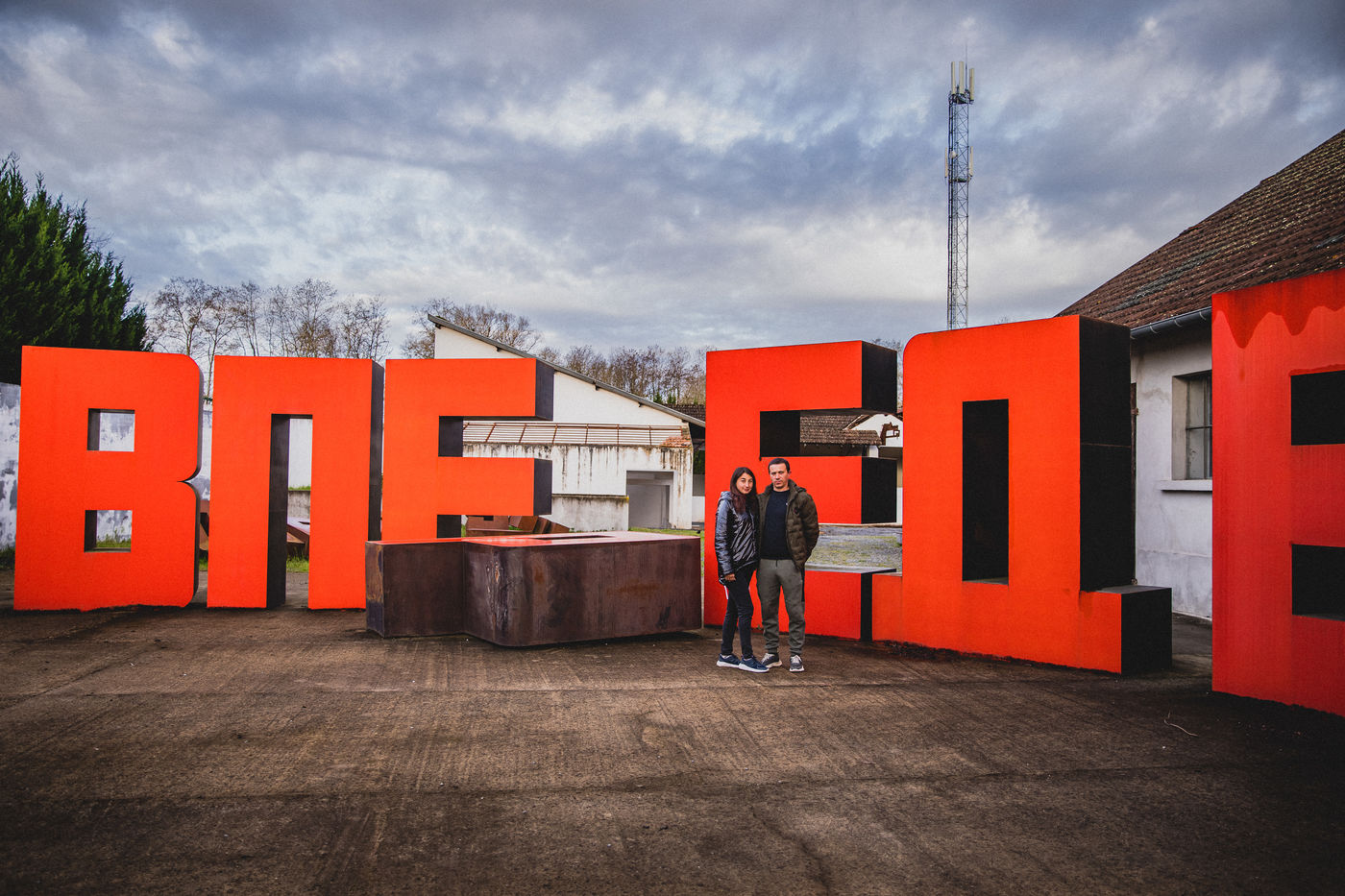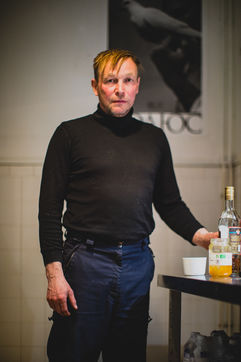Pour accéder à la série en entier, vous devez vous logger ou demander un compte Hans Lucas en cliquant ici.
UNIS CONTRE POUTINE: UN ARTISTE RUSSE AVEC LES REFUGIES UKRAINIENS (FRANCE)
A Maubourguet, petite bourgade des Hautes-Pyrénées près de Tarbes, un artiste russe conceptuel Andrei Molodkin visionne chez lui sur son écran d' ordinateur la vidéo de son installation interactive « Poutine rempli de sang ukrainien ». L'oeuvre égrène seconde après seconde le nombre croissant de victimes de la guerre en Ukraine au son rythmé d'un coeur en train de battre. A ses côtés, des enfants russes et ukrainiens regardent avec inquiétude le portrait ensanglanté de Poutine. L'oeuvre en plexiglass à l'effigie de Poutine dénonce l'invasion russe en Ukraine. Présentée à Londres puis dans la capitale Slovène, elle a été réalisée avec du sang de donneurs volontaires ukrainiens. Parmi les donneurs, figure Sacha*, un collaborateur et ami de l'artiste, de passage en France au centre d'art expérimental d'Andrei, la Fonderie, avant que la guerre n'éclate en Ukraine. Après le début de l'invasion russe dans son pays, Sacha* a fait rapatrier à la Fonderie son épouse et ses deux enfants d'Ukraine. Pendant quelques semaines, la famille ukrainienne de nouveau réunie a tenté de retrouver un semblant de normalité grâce à la générosité de cet étonnant artiste russe et de sa famille. Pour Andrei, marqué à jamais par son service militaire dans l'armée soviétique, l'art signifie avant tout engagement politique et non simple divertissement. Ses oeuvre sont composées de mot russe évocateur signifiant par exemple « rien à foutre » ou "en avant". Non à voir mais à concevoir, ses oeuvres côtoient des oeuvres figuratives d'Andres Serrano dénonçant la torture et la guerre dans des mises en scène photographiques. Le fils russe d'Andrei et les deux garçons ukrainiens de Sacha jouent à se faire peur, comme n'importe quels autres enfants vivant hors des tourments de la guerre. Tous les jours, la jeune épouse ukrainienne de Sacha* s'assure que ses garçons ne ratent pas la classe, notamment d'apprentissage de l'écriture, dispensée à distance depuis l'Ukraine par visio conférence. Un soir, Sacha et son épouse préparent pour la famille d'Andrei un borscht, un plat traditionnel aussi bien ukrainien que russe. D'autres amis ukrainiens et originaires du Belarus sont conviés au repas. L'heure n'est cependant pas à la fête. Sacha regarde inquiet sur son portable les dernières nouvelles du front. Il dit que bientôt il partira lui aussi aider son pays à se défendre contre l'agression russe. Et effectivement Sacha est reparti en Ukraine depuis.
*le prénom a été modifié.
JOINING FORCES AGAINST PUTIN: A RUSSIAN ARTIST TOGETHER WITH UKRAINIAN REFUGEES (FRANCE)
In Maubourguet, a small town located in the French department Hautes-Pyrénées near Tarbes, the Russian conceptual artist Andrei Molodkin is watching at home on his computer screen a video of his interactive installation "Putin filled with Ukrainian blood". The artwork shows in real time the growing number of casualties from the war in Ukraine to the rhythmic sound of a beating heart. Beside him, Russian and Ukrainian children look anxiously at Putin's bloody portrait. The plexiglass work with Putin's image denounces the Russian invasion of Ukraine. Exhibited in London and then in Slovenian capital, the artwork is made out of blood from voluntary Ukrainian donors. Among the donors is Sacha*, a collaborator and friend of the artist who was in France at Andrei's experimental art centre, the Foundry, before the war broke out in Ukraine. After the beginning of Russian invasion of his country, Sacha* repatriated his wife and his two children from Ukraine to the Foundry. For a few weeks, the reunited Ukrainian family tried to live again a sense of normalcy, thanks to the generosity of this amazing Russian artist and his family. For Andrei, forever marked by his military service in the Soviet army, art means above all political commitment and not a mere entertainment. His artworks are made up of evocative Russian words meaning for instance « don't give a shit » or "ahead'. They are not to be seen but to be comprehended. They stand alongside figurative works by the artist Andres Serrano, who has denounced torture and war in photographic staging. Andrei's Russian son and Sasha's two Ukrainian boys are playing at scaring each other, like any other children living outside the torments of war. Every day, Sacha's* young Ukrainian wife makes sure her boys don't miss the class, including the writing class, which is taught remotely from Ukraine by video conference. One evening, Sasha and his wife are preparing a borscht for Andrei's family, both a traditional Ukrainian and Russian dish. Other Ukrainian and Belarusian friends are invited to the meal. But it is not time for celebration. Sasha* is looking worriedly on his mobile phone at latest news from the frontline. He says that soon he too will go to help his country to defend itself against Russian aggression. And indeed, Sacha has since gone back to Ukraine.
*First name has been changed.
